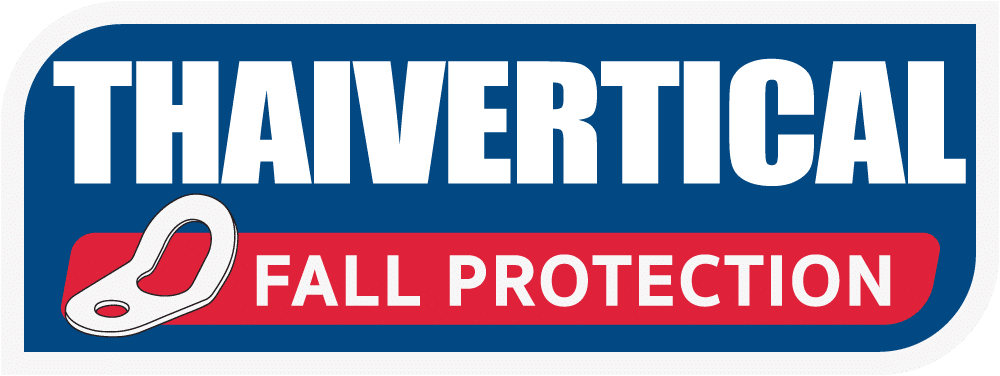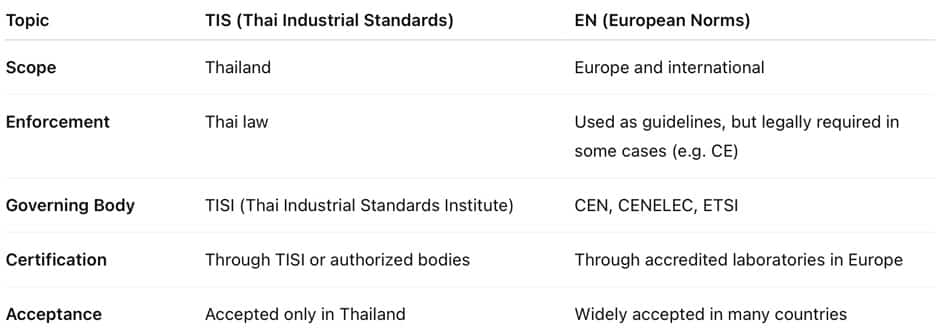TIS (Thai Industrial Standards) and EN (European Norms) are industrial standards used at the national and international levels. They differ in terms of enforcement scope, certification processes, and legal authority, as outlined below:
1. Scope of Application
TIS (Thai Industrial Standards)
-
TIS is Thailand’s national industrial standard, established by the Thai Industrial Standards Institute (TISI).
-
It includes both mandatory and voluntary standards.
-
Covers products essential for public safety such as electrical appliances, safety helmets, and personal protective equipment (PPE).
-
TIS is not internationally recognized outside Thailand.
EN (European Norms)
-
EN standards are developed by European organizations such as CEN, CENELEC, and ETSI.
-
Widely used as reference standards across Europe and are often recognized globally.
-
Cover a wide range of industries including machinery, safety equipment, electrical systems, food, and pharmaceuticals.
2. Legal Enforcement
TIS
-
Has legal status in Thailand for products subject to mandatory standards, such as helmets, electrical wires, and switches.
-
For voluntary standards, manufacturers may choose to certify their products to enhance credibility.
EN
-
Not directly enforced by law, but in many cases, products meeting EN standards can also fulfill European legal requirements such as CE Marking, allowing access to the European market.
-
Globally recognized as high-safety standards, often required in industries with strict safety needs due to their rigorous testing requirements.
3. Certification Process
TIS
-
Requires testing and certification by TISI or an authorized organization.
-
Involves factory inspections, product sample testing, and quality monitoring.
EN
-
Certification and testing are conducted by European labs or standard certification bodies such as TÜV, SGS, or BSI.
-
For safety-related standards, additional inspections may be required to obtain CE Marking.
4. Usage in Thailand
-
TIS is applicable only within Thailand.
-
EN, although a European standard, is globally accepted and can help products meet regulations in many countries if they are EN-certified.
5. Differences in Technical Requirements
-
Many TIS standards are developed based on international references such as ISO, IEC, or even EN.
-
EN standards tend to be more comprehensive and stringent, especially in areas of safety, hygiene, and usability.


